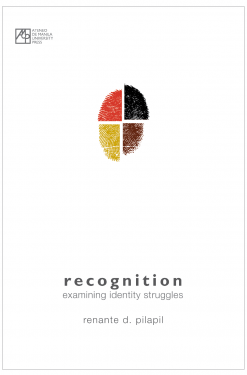
Today’s political landscape is interspersed with new social movements driven by the common claim of recognition of identity and difference. The main thrust of this identity politics is that human beings need “goods” governing their social relationships that are significant sources of well-being, foremost of which is recognition.
Renante Pilapil explores the political and philosophical issues underlying contemporary struggles for recognition. Critically engaging with the major theorists of recognition, he discusses a broad spectrum of recognition-related topics—both conceptual and practical—namely cultural rights, autonomy, moral suffering, social conflict, storytelling, the Lumad struggle, and the Moro struggle in Mindanao. Pilapil argues that, although formal affirmative recognition suffers from problematic implications, it is the best means available for responding to identity claims of minority groups. Drawing from Axel Honneth, he also claims that recognition struggles are grounded in the desire for intact personal identity and self-realization. The book is a fitting critical introduction to the fascinating yet difficult and controversial issue of recognition.
Published in 2015.




